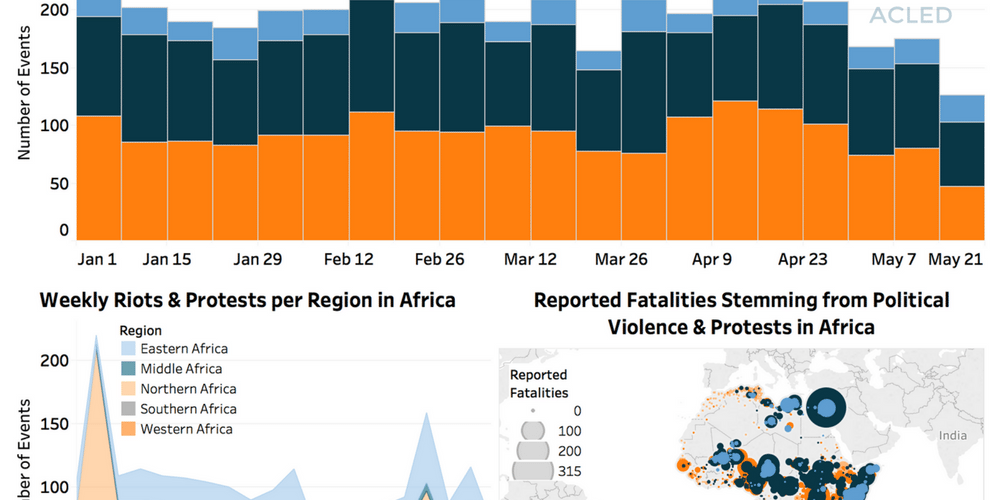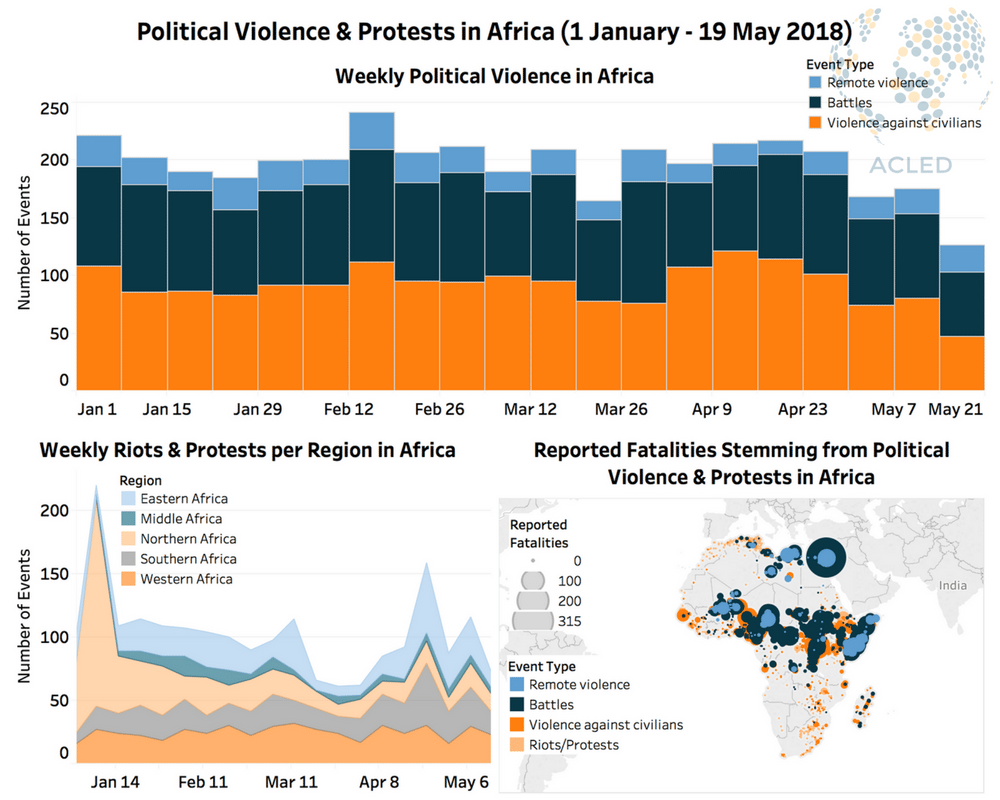Key developments on the African continent during the week of May 13th included prolonged incidents of political violence in Libya, Cameroon and CAR; cross-border operations from the DRC; and a number of protests and riots by students and among political party supporters.
In Libya, battles intensified in Darnah district between the Libyan armed forces and the Shura Council of Darnah Mujahidin – recently rebranded as the Derna Protection Force (DPF). There was a succession of complex attacks involving ground battles, landmine explosions, shelling as well as drone strikes by forces from the United Arab Emirates. The Libyan forces regained some territories in the area but the impact was high as more than 60 died, including civilians hit in airstrikes on residential areas. In Cameroon, heavy fighting between the Cameroonian army and the Ambazonian separatists spanned at least four days in Meme department (Sud-Ouest). In one incident during the fighting on May 14th, state forces attacked the Fue-Bakundu village where rebels were believed to have taken shelter. They opened fire on civilians causing at least 37 deaths and injuring 400 people. Lastly, four days of violence hit Bambari in CAR as the killing of three Fulani men by unknown assailants on May 14th led to reprisal attacks by the forces of the Union for Peace in CAR (UPC). The UPC militants set up checkpoints throughout the city and looted and executed civilians in the area until May 17th.
Other incidents also revealed the ease with which armed groups operate across borders in Africa. On May 17th, the Central African Anti-Balaka ambushed a MINUSCA patrol in Alindao, at the border with the Democratic Republic of Congo (DRC). The day before, it was reported that an Anti-Balaka General had been arrested along with 30 of his men on the DRC side of the border, in Bondo (Orientale province), after clashes with the Congolese forces. The border between the DRC and Burundi has been recently affected by cross-border attacks. A week after the May 11th raid in Burundi’s Cibitoke province by unknown gunmen coming from the DRC, gunmen from the DRC again penetrated the province and clashed with the regular army units and youth from the Imbonerakure. Around the same time on the DRC side of the border, in Uvira, protests erupted following the killing of a local chief, with the protesters barricading the roads to Burundi.
Finally, there was a significant number of protests and riots by students and among political party supporters in Africa on the week of May 13th. In Algeria and Liberia, students protested the structure of their studies and the lack of teachers, while they mobilised in the DRC, Gabon, Madagascar, Nigeria and Senegal over funding issues. In Madagascar, the students clashed with other protesters that have been calling for the president to step down over the past few weeks, deepening the political crisis in the country. In Senegal, clashes ensued between the students and the police in Saint Louis on May 15th, causing the death of a student, which inspired further student protests the next day. Election-related intra-party clashes also marred a number of contexts, such as Gambia, Nigeria, Zambia and Zimbabwe. In Nigeria, clashes between factions of the All Progressives Congress (APC) youth wing on May 12th and May 16th in Gombe, Lagos and Cross River states left five people dead. In Zimbabwe, there were clashes among rival supporters of the Movement for Democratic Change (Tsvangirai Faction) in several areas of Harare and in the Midlands during the party primaries on the weekend of May 13th.
AfricaAnalysisCivilians At RiskConflict MonitoringCurrent HotspotsRemote ViolenceRioting And Protests







